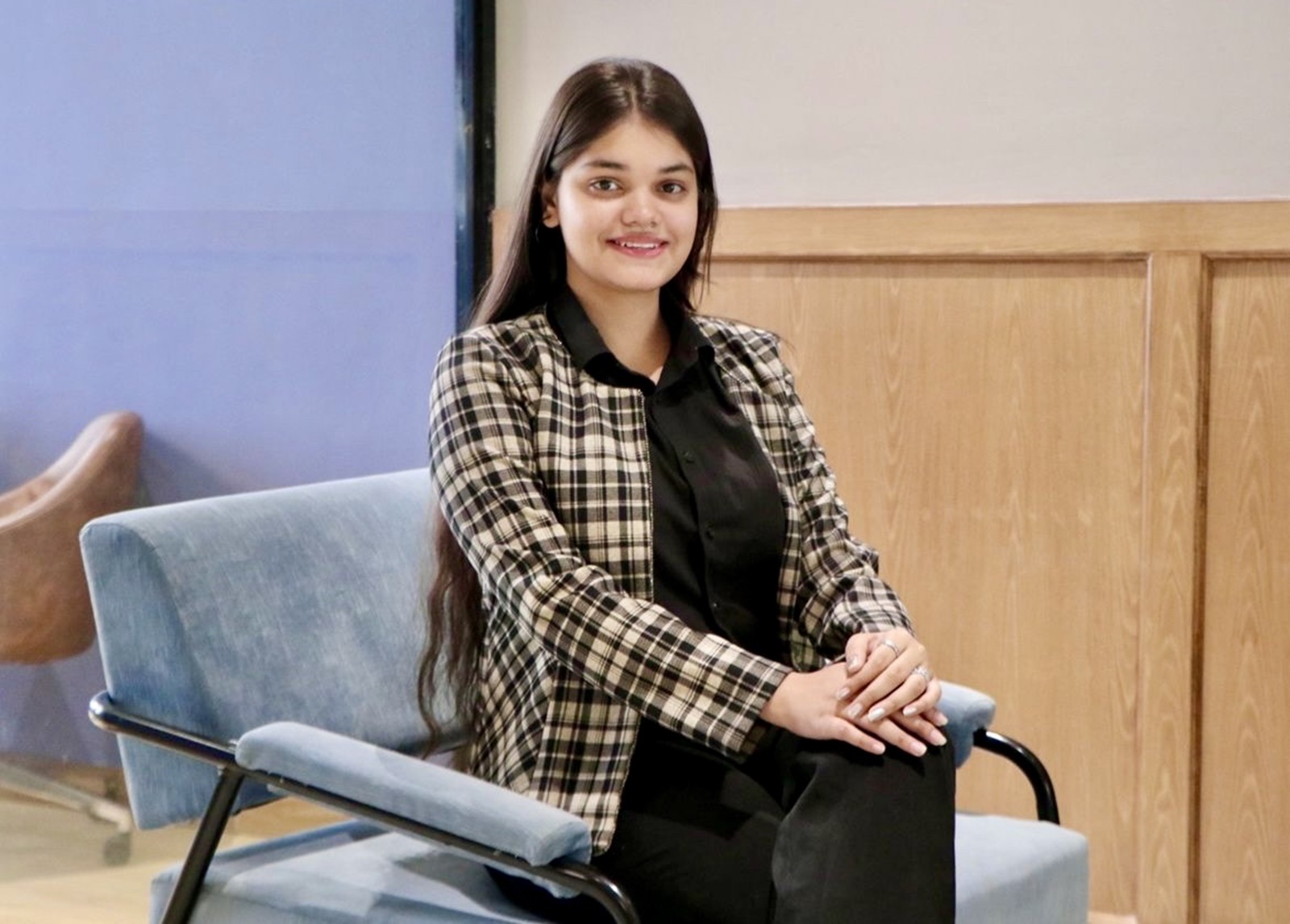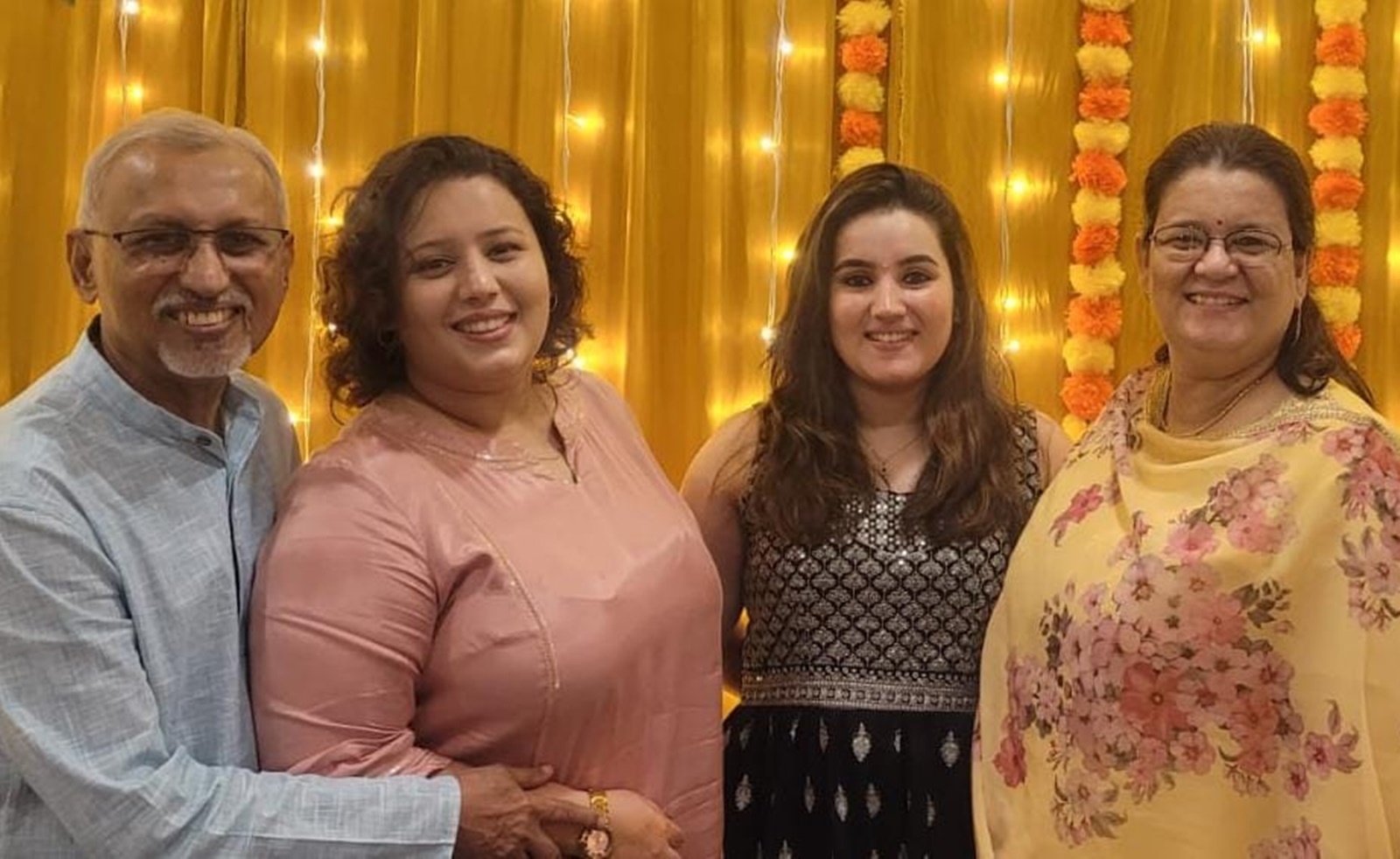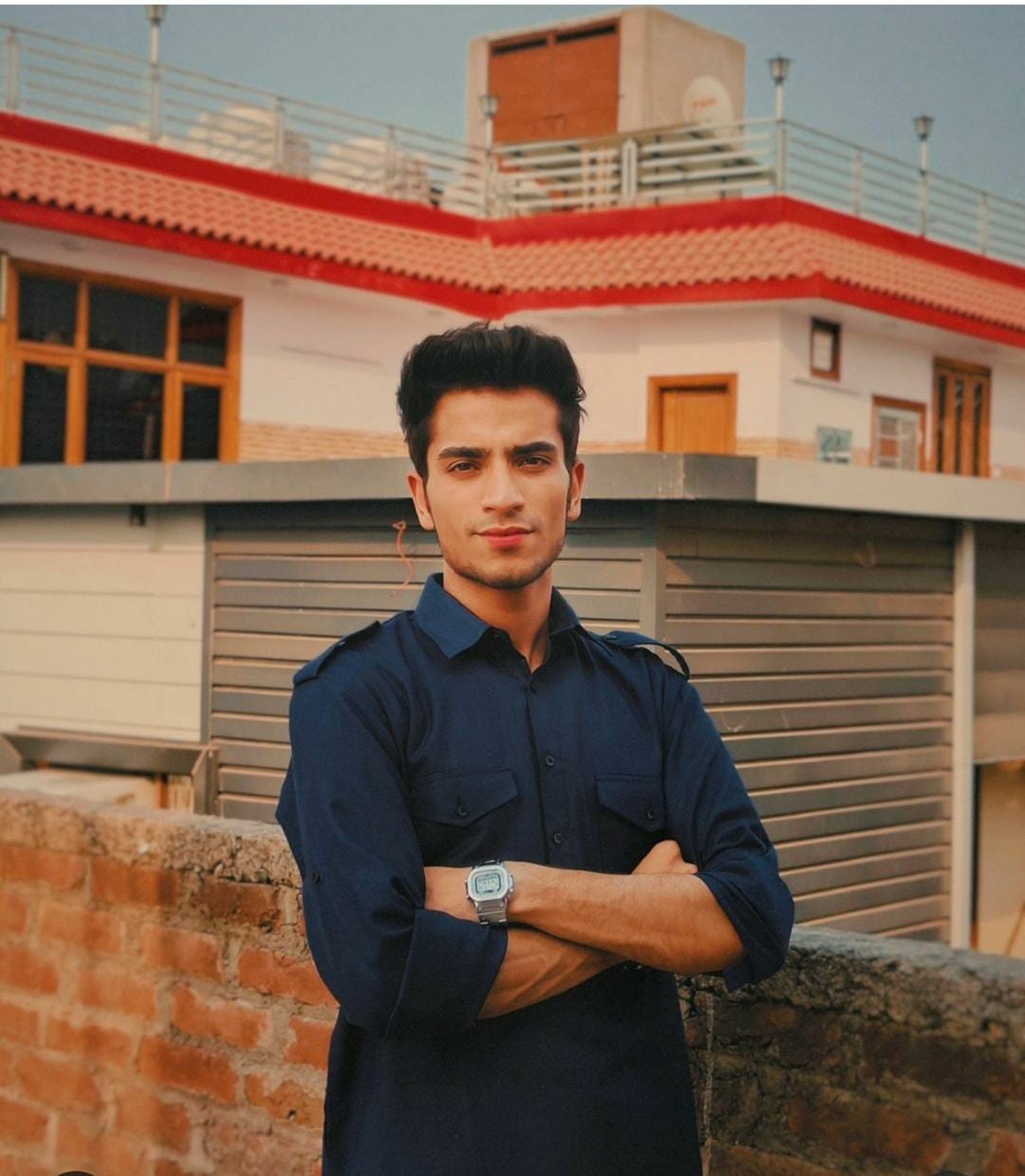In today’s world, as barriers of religion, caste, and other divisions are increasingly fading, many are growing up in households where their parents practice different faiths. 12th Fail actor Vikrant Massey, who revealed his parents had an interfaith marriage––his father is a Christian and mother, a Sikh––recently shared his experience of growing up in such an environment.
Adding to the family’s pluralistic story, Massey also mentioned that his brother, Moeen, embraced Islam. “My brother does Laxmi puja on Diwali. His conversion is his personal choice. But we celebrate Diwali and Holi together here. On the occasion of Eid, we celebrate it at his place, having biryani. Today, that fulcrum is absent (in society),” Massey said.

“My father has been to Vaishno Devi temple (located in Katra, Jammu and Kashmir) six times. He is a Christian and goes to church twice a week even now. But that’s what India has always been like. We go to gurudwaras and many Hindus go to Ajmer Sharif Dargah (located in Rajasthan). This is our Hindustan. Why is it so surprising? There’s a temple in my house. My son’s name is Vardaan. This is the fabric of our country.”
While most children are raised with a singular religious perspective, kids of parents who practice different faiths gain a deeper understanding of two distinct worldviews. Indianexpress.com spoke with several individuals who grew up in interfaith households to learn about their experiences –– the benefits and challenges, the unique traditions, moments of inner conflict between faiths, and how these dynamics shaped their relationships with family members and peers.
Growing up with parents of different faiths
Pranjal Kumar, 21, recalled her childhood with traces of two distinct spiritual traditions––her father’s Hindu customs and her mother’s Christian practices. “I was exposed to two distinct religious traditions, which instilled open-mindedness and curiosity in me,” she told indianexpress.com. This exposure gave her a balanced perspective on life, and encouraged her to explore and embrace diversity, fostering a lifelong journey of self-discovery.
Similarly, Sahil Khan, 25, described his home as a “beautiful amalgamation of faiths.” He grew up celebrating Christmas with Christian friends and Eid with Muslim neighbours. “Religious hatred never entered our house or mind. Living in a dual-faith household ingrains tolerance in you whereas in households with a single religion, this often seems like a matter of personal choice,” he said.
 “I was exposed to two distinct religious traditions, which instilled open-mindedness and curiosity in me,” said 21-year-old Pranjal Kumar. (Source: Pranjal Kumar)
“I was exposed to two distinct religious traditions, which instilled open-mindedness and curiosity in me,” said 21-year-old Pranjal Kumar. (Source: Pranjal Kumar)
Sonia Rodrigues, 36, said that experiencing both Hinduism and Roman Catholic traditions taught her that, at the core, “all religions share the same foundational principles: love, forgiveness, compassion, and the pursuit of truth.” “I fasted on Ekadashi and during Lent, celebrated Diwali and Christmas alike. This balance taught me to embrace universal human values,” she said.
“My mother was Catholic and my dad a Hindu,” said Rhea Cheryl Shivan, 32. “While they had a Christian wedding, my dad wasn’t obliged to convert. I was raised Catholic, as is common in many households in my family and friend circles, but my father occasionally shared aspects of his religion with us (He’s a believer in a higher power but not necessarily a practicing Hindu),” she told indianexpress.com. Shivan’s parents raised her to be very mindful and respectful of all religions, and said that her home library was a symbol of inclusivity, with the Bible, the Bhagavad Gita, and the Quran side by side.
Feeling conflicted between the two religions
“I don’t believe I ever felt conflicted between two religions,” Shivan said, adding that culturally and socially, people usually tend to adopt the practices of the maternal side, and this was the case for her. “Hindu festivals or religious practices became moments of exploration and learning. This continues to be true today.”
Khan echoed this, “Never happened.” However, for Kumar it was the opposite. “There were certainly moments when I felt conflicted or torn between the two religions. During religious holidays or family gatherings, I often found myself navigating between different traditions and practices. However, my parents were always supportive and understanding, allowing me to explore both faiths without feeling pressured to choose one over the other.”
“My parents believed that religion should never be imposed,” said Rodrigues. “I was equally fine fasting on Ekadashi or Mahashivratri as I was during Lent. Festivals like Diwali and Christmas were celebrated with the same enthusiasm and joy.”
 Rhea Cheryl Shivan (second from right) spoke about how her parents raised her to be very mindful and respectful of all religions (Source: Rhea Cheryl Shivan)
Rhea Cheryl Shivan (second from right) spoke about how her parents raised her to be very mindful and respectful of all religions (Source: Rhea Cheryl Shivan)
Relationships with extended family members or peers
“Coming from a family where many of my parents’ generation had interfaith marriages, relationships vary,” Shivan said. She acknowledged that not all family members and friends are as open and accepting of other religions as they are. “There have been heated debates, but also unifying moments––especially during weddings––when we manage to blur the lines and celebrate love and togetherness, irrespective of religion.”
Rodrigues confessed that her parents had a love marriage, but not against the family’s will. “As a result, our relationships with extended family members have remained warm and positive. In fact, being part of an interfaith household often adds an interesting dynamic to these relationships.”
Khan said, “My social life has also been enriched.” He believes his openness towards other religions draws him to people from diverse backgrounds, and his peers are often curious to learn about different religions from him.
Although a few relatives were initially curious or had questions about his parents’ interfaith marriage, Kumar acknowledged that the majority ultimately came to welcome and embrace his family’s one-of-a-kind dynamic. “My friends were also interested in my background and frequently inquired about my religious beliefs. These discussions allowed me to share my experiences and promote understanding and tolerance,” she said.
Psychological benefits and challenges of being raised in interfaith households
Neha Parashar, senior clinical psychologist at Cadabams Hospitals, said, “Growing up with exposure to two distinct faiths fosters open-mindedness and tolerance.” She cited a study in the Journal of Intercultural Psychology (2018), which found that children from interfaith families tend to develop a nuanced understanding of cultural diversity.
“Adjustment, mutual respect, and communication become foundational values in such households. Skills such as critical thinking, compassion, empathy, and the ability to hold meaningful dialogues are cultivated, strengthening interpersonal relationships,” said mental health counsellor Anuckriti Garg.
 Sahil Khan, 25, described his home as a “beautiful amalgamation of faiths.” (Source: Sahil Khan)
Sahil Khan, 25, described his home as a “beautiful amalgamation of faiths.” (Source: Sahil Khan)
In terms of the challenges, Smitha Kashi, consultant art psychotherapist at Spandana Health Care, stressed that children may experience internal conflicts if the beliefs of both parents are at odds or if extended families express disapproval. “Inconsistencies in how the faiths are practiced can lead to confusion or a feeling of not fully belonging to either tradition. It is crucial for parents to provide clarity and stability while encouraging exploration and dialogue about faith,” she said.
In families where one faith dominates, Parashar noted that children may feel pressured to favour one belief system over the other, “leading to guilt or anxiety.”
Development of empathy, adaptability, or critical thinking skills
According to Garg, “In interfaith households, without a single theological framework, children are encouraged to explore diverse cultures, ideas, and perspectives. As a non-normative structure, interfaith families are more likely to foster an appreciation for diversity, inclusivity, and empathy. Learning to navigate the stigma associated with interfaith households equips children to adapt and cope with challenging situations.”
Parashar concurred, saying, “Children in interfaith families often grow up adapting to two sets of norms, celebrations, and expectations. This adaptability makes them more comfortable in multicultural environments, a key trait in today’s globalised world.” She is also of the opinion that reconciling differing beliefs, values, or practices pushes children to think critically about their own identities and moral frameworks. “They learn to evaluate which aspects of each faith resonate with them personally, fostering independent thought and intellectual growth,” she said.
 Sonia Rodrigues, 36, said that experiencing both Hinduism and Roman Catholic traditions taught her that, at the core, “all religions share the same foundational principles (Source: Sonia Rodrigues)
Sonia Rodrigues, 36, said that experiencing both Hinduism and Roman Catholic traditions taught her that, at the core, “all religions share the same foundational principles (Source: Sonia Rodrigues)
Can navigating dual religious identities help build resilience or unique coping mechanisms?
Yes, navigating dual religious identities can foster resilience, according to Parashar. “Children learn to mediate between differing viewpoints, a skill transferable to social and professional situations,” she said.
“When supported effectively, they often develop a robust sense of identity, grounded in the ability to synthesise and embrace diverse aspects of their upbringing,” Kashi said.



